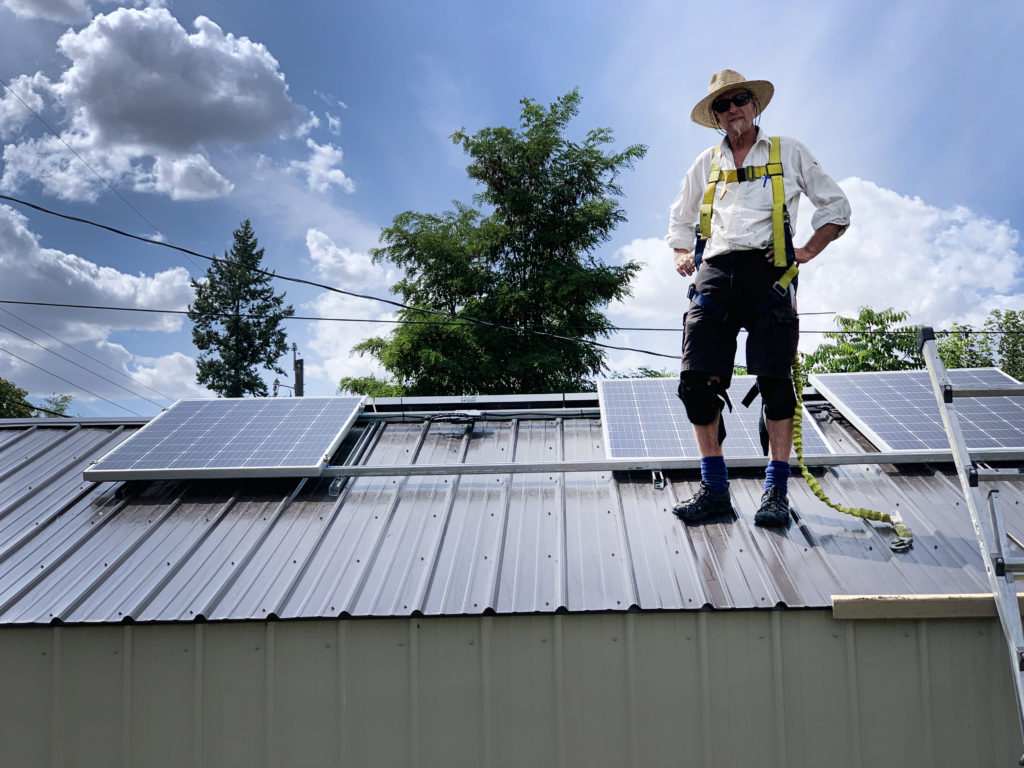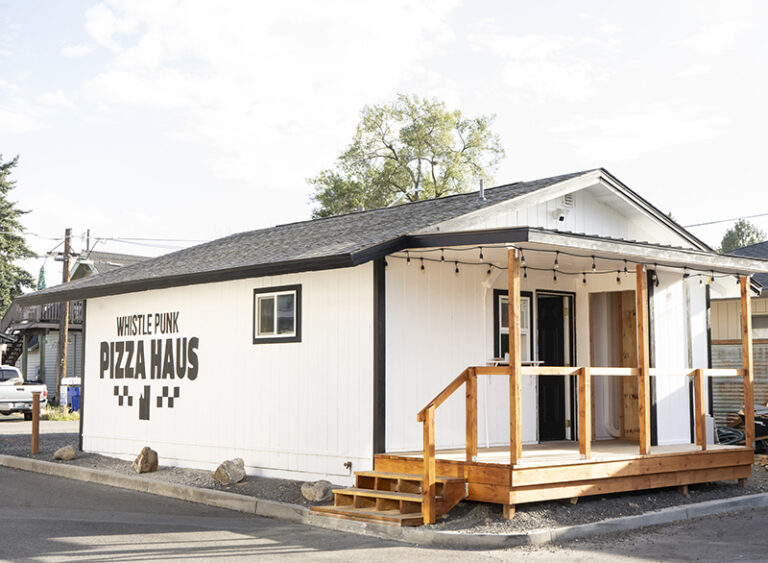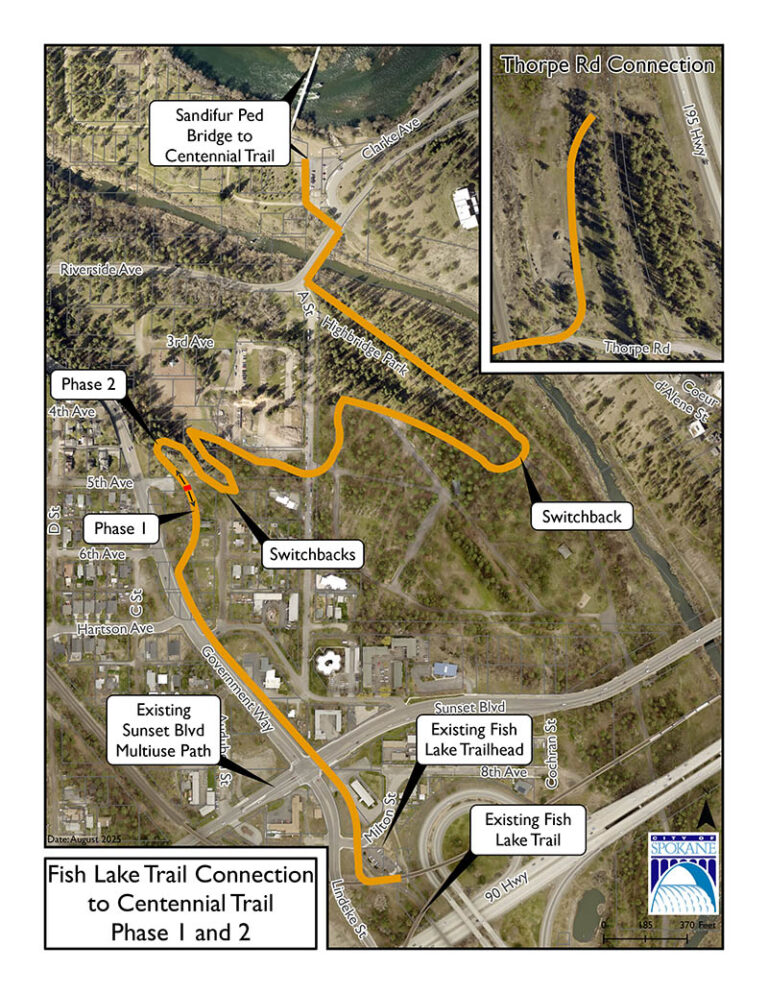This August, Out There Outdoors magazine made the shift to solar power for their Spokane office where much of each issue is created. The print edition of Out There has been around the Spokane area for nearly 15 years and is now available for free at hundreds of locations around the Northwest. “Powering a major piece of the magazine production process with free, sustainable sunshine is something we’ve wanted to do since we bought the magazine in 2013,” says publisher Derrick Knowles. The new 12-panel system on the Out There office roof is expected to produce around 4,680 kilowatt hours, which is more than enough to power office computers, lights, and heaters, says Bruce Gage, owner of Eco Depot, the Spokane-based company that completed the solar installation.
Eco Depot completed its first residential solar installation in 1999, and Gage notes that the interest in solar around the Inland Northwest has begun to snowball in recent years. Spokane County continues to be a hot spot for new solar installations, along with the Washington State communities of Colville and Moses Lake and Moscow, Idaho, says Gage. There are many environmental reasons, including reducing fossil fuel use and the impact on climate change, that were a major reason why Out There made the shift from traditional sources like hydro, natural gas, and coal to solar. But Gage points out that for many of the new solar converts independence and not relying solely on the grid played a major role in their decision to install a home solar system. “There’s something about the independence of creating your own home energy and eventually not having a power bill,” he says. “It’s a great feeling to be making your own power.”

Depending on how many panels are installed and how much energy a home or business uses, that independence will also pay off economically once the cost of the installation is re-cooped through utility bill savings, which can take anywhere from a handful of years to 10 or more years. Immediate economic savings with a 30% federal income tax credit and the potential for renewal of other program’s like Washington State’s Renewable Energy Cost Recovery Program that further incentivized home owners for putting solar power back into the grid with an annual cash reward. That state program was put on hold due to funding issues in January, but the program may start accepting applicants again soon if funding is restored. Being able to produce each issue of Out There with the help of the sun is pretty amazing, says Knowles. “It’s past time for one of the most prosperous countries in the world to make the shift wherever we can toward a more sustainable and independent energy future,” he says. “We are excited about our partnership with Eco Depot and to have the opportunity to help inspire Out There readers to make the investment and go solar.”













